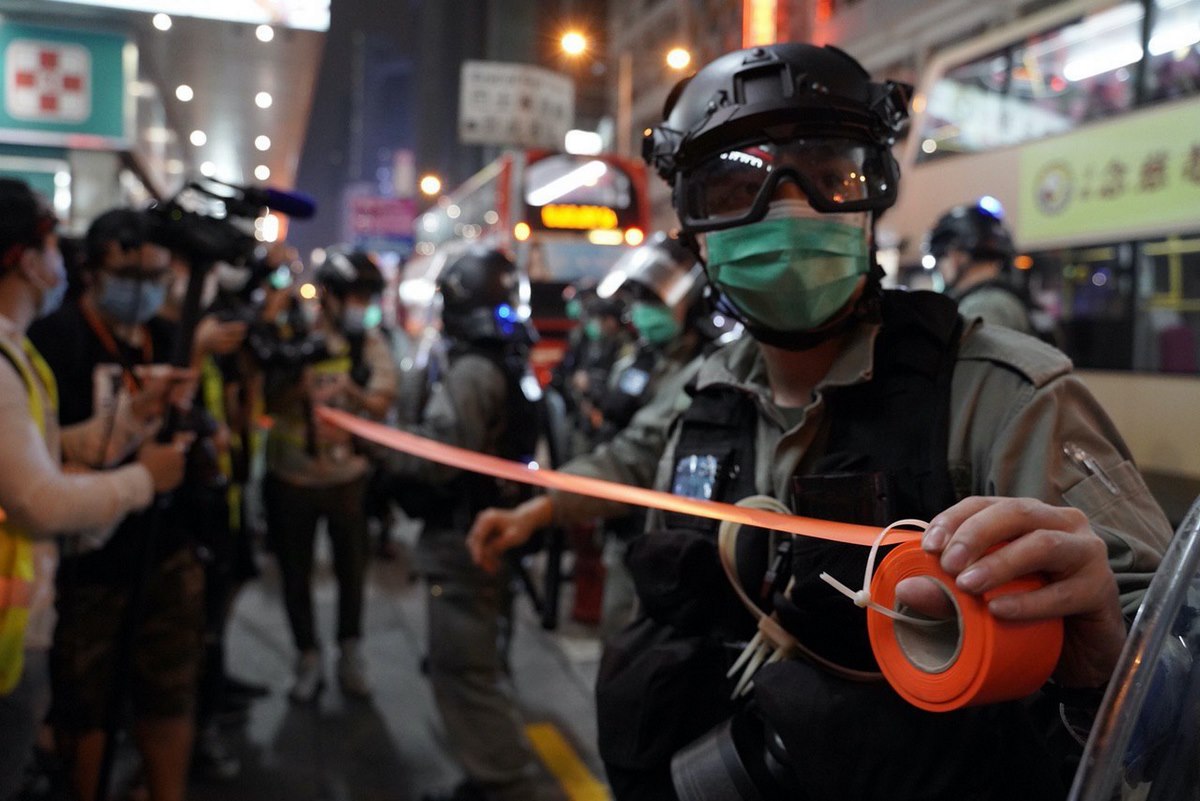The law is sometimes accused of lagging behind advances in modern technology, but nobody can now level that accusation at Hong Kong’s courts. Two cases illustrate rather contradictory approaches to digitalism, reported by a convenient coincidence on the same day.
In the first we had the Department of Justice complaining to the Court of Appeal that three defendants had been erroneously acquitted of rioting on the grounds – prepare to be shocked – that they were not present when the riot took place.

The Department argued that people could still be participants in a crime if not present, as long as they had “a common purpose”. This is a legal doctrine of great antiquity, whose history is littered with miscarriages of justice. A notable example was the case of Derek Bentley, who was actually in police custody when his accomplice in a burglary shot a policeman. Bentley was hanged. His accomplice, the actual killer, was only 16 and so not eligible for the rope. This case is not now regarded as a great success.
Anyway, as our local “riot” defendants had been acquitted by a District Court judge there was no question of overthrowing the judge’s verdict. So there was apparently nobody present to dispute the Department’s view of the law. Proceedings in our courts are usually said to be “adversarial”, meaning that the result emerges from the judge or judges listening to presentations and evidence from both sides of the argument.
When the only argument presented is from the Department of Justice we can, I fear, expect fairly terrifying results, and that is what we got.
The judges decided, and we need not be surprised at this, that there were a variety of roles in public disturbances, and some of them – funding, providing of “back-up”, or acting as look-outs – might not involve actual presence. So far this is as expected.

Then we get this: “Given the prevalent use of social media applications such as WhatsApp, Instagram, Telegram and Facebook, people nowadays can easily find themselves placed in situations where they can be accused of encouraging people to participate in unlawful assemblies or riots by posting comments or sending messages or even simply sending a ‘like’”.
Then we get the usual platitude about freedom of expression having limits and “”if there is sufficient evidence to establish their liability under the accessorial rules or the doctrine of joint enterprise they are no longer people exercising their freedom of expression. They have crossed the permissible line and become a perpetrator to an unlawful assembly or riot and should be held liable as such.”
Got that? A misplaced ‘like’ and you’re a rioter. As nobody is actually going to prison at the end of this case we can assume there will be no appeal, so this will be the law until someone else goes to the enormous trouble and expense of taking the matter to the Court of Final Appeal.
Now let’s move to the High Court, where District Council election loser Jimmy Lam succeeded in an election petition which sought to overturn the result because the victor, Timothy Lee, had falsely claimed the support of sundry pro-democracy stars.

This was a perfectly logical decision. Candidates in elections are apparently required to submit a “consent to support” form indicating that anyone they claim support from is happy with the arrangement. Mr Lee claimed the support of seven people – including serial disqualification star Lau Siu-lai – in his election advertisements.
There was no evidence that Mr Lee had actually done this without the consent of the people concerned. As he was a pro-democracy candidate and his adversary was a member who had been sitting in the establishment interest (albeit under the banner of Kowloon West New Dynamic, whatever that means) it would be surprising if they were unwilling.
Lurking in the Standard’s report of this matter (solid job by Carine Chow) was one interesting phrase: “Lam said Lee had only contacted the supporters through WhatsApp and Telegram …” In other words Mr Lam is not disputing that they consented. This was not enough. Mr Lee was unseated for deficient paperwork.
Each of the two decisions above appears perfectly rational and lawful. Taken together, though, they produce a rather unpleasant smell.
If you are an opponent of the government the mere pressing of an ill-chosen ‘like’ button can turn you into a rioter. If you elect instead to run for election to your local district council, on the other hand, a mere ‘like’,or even an Instagram message, is not enough to validate your claims of support. The putative supporter must fill in a paper form, preferably with a quill pen, to satisfy legal requirements.
More learned pens than mine claim we still have an independent judiciary. What difference would it make if they were dependent?
Support HKFP | Policies & Ethics | Error/typo? | Contact Us | Newsletter | Transparency & Annual Report | Apps
| HKFP is an impartial platform & does not necessarily share the views of opinion writers or advertisers. HKFP presents a diversity of views & regularly invites figures across the political spectrum to write for us. Press freedom is guaranteed under the Basic Law, security law, Bill of Rights and Chinese constitution. Opinion pieces aim to point out errors or defects in the government, law or policies, or aim to suggest ideas or alterations via legal means without an intention of hatred, discontent or hostility against the authorities or other communities. |
Help safeguard press freedom & keep HKFP free for all readers by supporting our team

More HKFP OPINION:
HKFP has an impartial stance, transparent funding, and balanced coverage guided by an Ethics Code and Corrections Policy.
Support press freedom & help us surpass 1,000 monthly Patrons: 100% independent, governed by an ethics code & not-for-profit.










